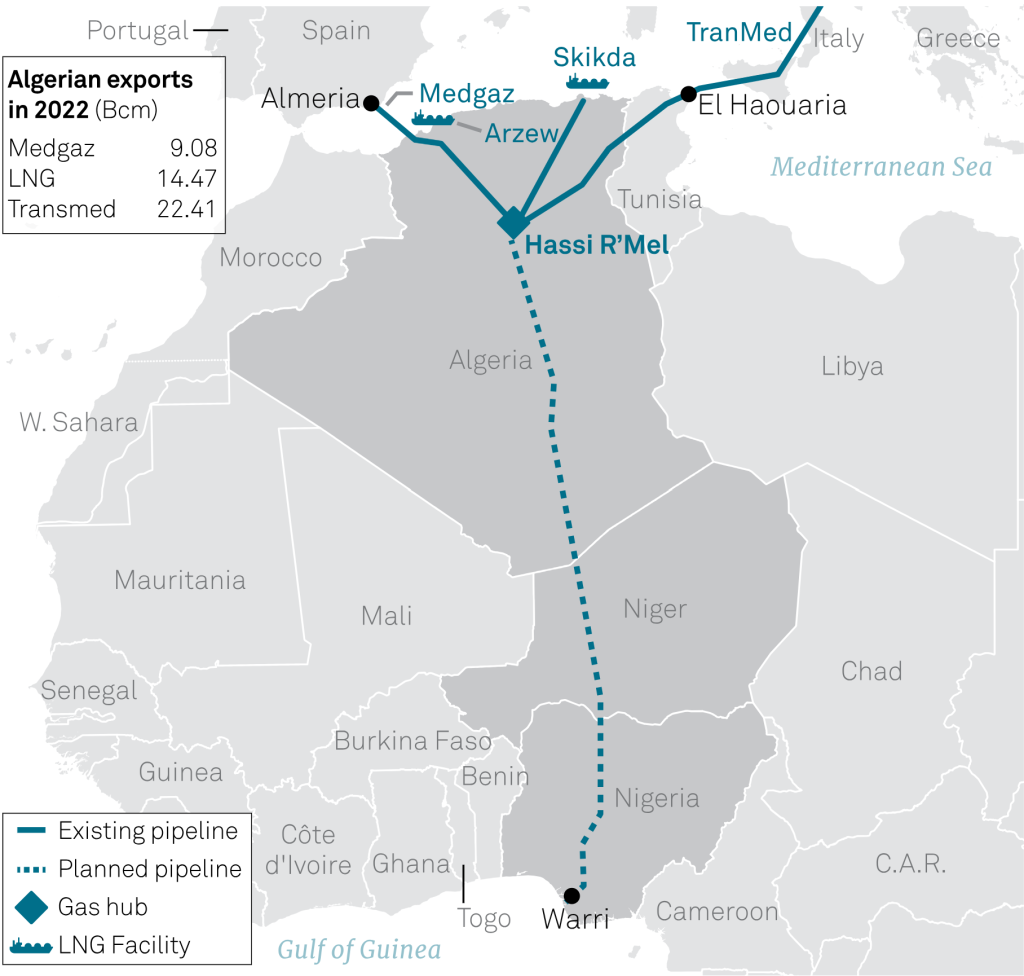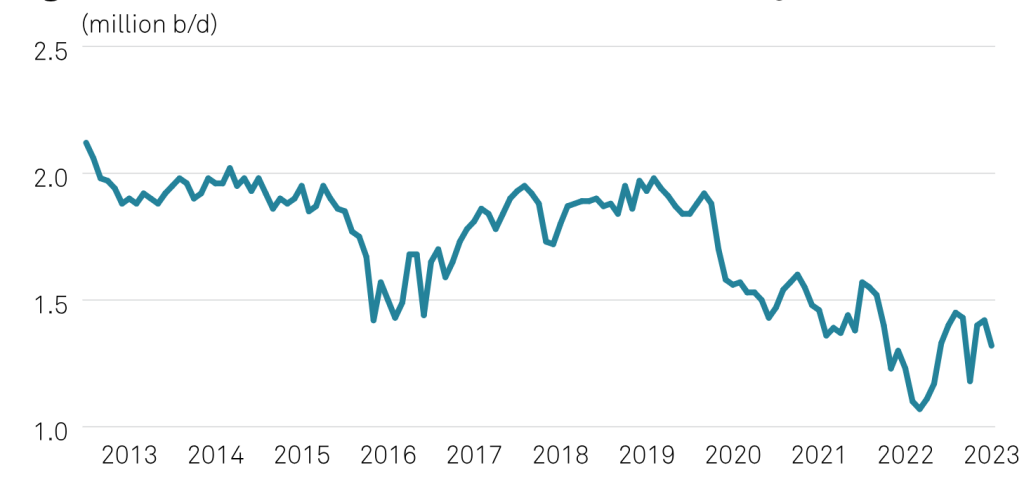Nigeria’s grand vision of the Trans-Saharan gas pipeline, a $13 billion, 4,128 km conduit stretching from Warri in southern Nigeria to Algeria’s Hassi R’Mel gas hub, faces considerable hurdles that threaten to derail one of West Africa’s most ambitious infrastructure projects. The pipeline, conceived in 2002, aims to transport 30 Bcm of gas daily and is central to Nigeria’s aspiration of becoming a major player in the European gas market, especially amid its declaration of the 2020s as the “decade of gas.”
However, the recent military coup in Niger has put the project’s future in jeopardy, as the Nigeria-led regional bloc ECOWAS contemplates deploying troops to the region. Concurrently, Nigeria grapples with domestic infrastructure issues, particularly the troubled AKK pipeline, casting doubt on the feasibility of connecting Africa’s largest gas reserves with European nations looking to reduce their reliance on Russian hydrocarbons.
Energy expert Olufola Wusu noted, “The Trans Saharan gas pipeline project presents an ambitious vision for energy infrastructure in Africa; however, its feasibility faces two critical challenges: the security situation in Niger and its dependency on the delayed and self-funded AKK pipeline.”
The Niger crisis remains unresolved, with ECOWAS imposing sanctions, including freezing state assets and business activity. The specter of violence on the Nigeria-Niger border looms as experts fear that an ECOWAS invasion could destabilize the region.
Much of the Trans Saharan pipeline’s capital expenditure is earmarked for Niger, a country with modest oil and gas production but significant reserves. The pipeline could help Niger monetize its gas reserves and combat illicit fuel trade, making it a strategic partner in the project.


Algeria’s involvement in mediating the Niger crisis is linked to its interests in the Trans-Saharan pipeline, as it seeks to exploit heightened European gas demand. Algeria is delivering pipeline gas and LNG to Europe, necessitating additional infrastructure if the Trans-Saharan pipeline materializes.
While questions surround the Nigerien segment, Nigeria has struggled to secure financing for the Ajaokuta-Kaduna-Kano gas pipeline, further complicating the project. The Nigerian National Petroleum Corp (NNPC) is bearing the financial burden, and the project’s completion timeline remains uncertain.
Despite these challenges, some remain optimistic about the project’s prospects, with NJ Ayuk, Chairman of the African Energy Chamber, expressing confidence in its eventual realization.


Nonetheless, critics argue that Nigeria would be better served by focusing on boosting LNG production and exports, considering the hurdles facing transnational pipeline projects like the Trans-Saharan gas pipeline.
The Trans-Saharan pipeline faces competition from the Trans Africa pipeline, an even more ambitious venture stretching through 13 West African countries from Nigeria to Morocco. While progress has been made, this project remains years away from realization.
In conclusion, Nigeria’s Trans-Saharan gas pipeline project stands at a critical juncture, facing geopolitical uncertainties, domestic infrastructure challenges, and competition from other energy solutions. The future of this ambitious endeavor hangs in the balance as stakeholders navigate a complex and rapidly changing landscape.



